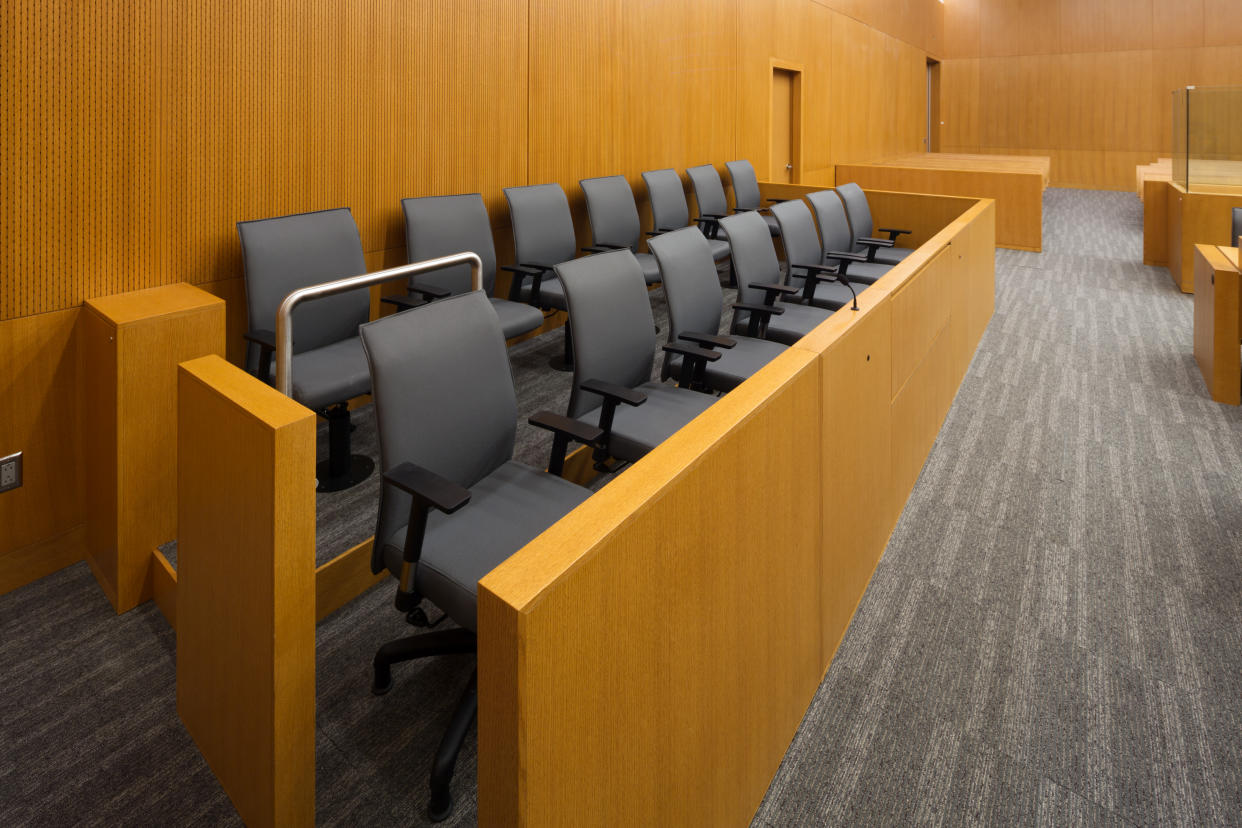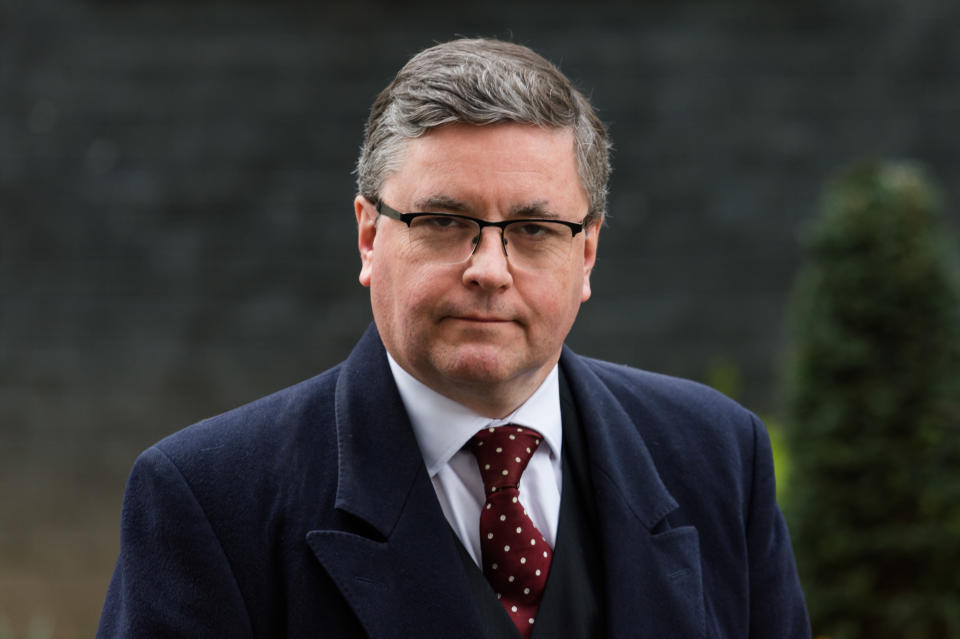Coronavirus: Government considering emergency new laws to create 'wartime juries'

The government is considering whether it should introduce laws to create ‘wartime juries’ to get trials running again.
Jury trials have been put on hold since 23 March due to the coronavirus lockdown, but officials are looking at how courts could get up and running.
It has been suggested that court proceedings will need to restart in some form to tackle a growing backlog of cases – believed to be around 37,000.
Trials in England, Wales and Northern Ireland currently have 12 jurors, while Scotland has 15, but during the Second World War juries were reduced to seven people except in cases of treason or murder.

The justice secretary and the Lord Chief Justice both said on Thursday that options to get courts up and running could include smaller juries.
Justice secretary Robert Buckland told the BBC that it would be a “dereliction of duty” if planning to reopen courts didn’t start for the summer but he hoped to see some return as early as next month.
Latest coronavirus news, updates and advice
Live: Follow all the latest updates from the UK and around the world
Fact-checker: The number of COVID-19 cases in your local area
6 charts and maps that explain how coronavirus is spreading
“I think the practical solutions that are being looked at are going to deliver the more immediate results in getting jury trials going again,” he said.
“Yes indeed I am considering whether or not we need to legislate – that would require primary legislation to, in effect, create a wartime situation with regard to juries but that’s going to take time.”
Speaking to BBC Radio 4’s Today programme, Lord Chief Justice Lord Burnett said there was “blue-sky thinking” going on at the moment.
“It is going to be necessary to look at more radical measures to enable jury trials to continue,” he said.
“I would support a move in those circumstances to reduce the number of jurors needed for a trial. Plainly it would be easier to ensure a safe trial for everybody with social distancing and other precautions if the number of people involved in a trial was reduced by a few.”
A working group chaired by High Court judge Mr Justice Edis is looking at measures that could be taken amid calls from lawyers for “clean, hygienic and safe” courtrooms.
“The use of big venues, all of this I can assure you is already being thought about,” added Lord Burnett.
“You can’t have juries sitting together cheek by jowl, you can’t have them expectorating towards each other in a tiny jury box.”
Buckland said he had noted a decline in the number of cases coming into courts, but the large backlog had not gone down.
“Obviously the concern is how we deal with what might be a bow wave later in the year in making sure that we can cope with the cases coming through the system,” he said.
Other suggestions have included virtual trials for victims giving evidence.
Dame Vera Baird QC told the BBC: “They don’t have to come to court, they don’t have to face the pomp of it, when they’re not sure what’s going on.
“They might run into the defendant, the defendant’s brother might deliberately bump into them.
“If you can go to remote evidence somewhere in a suburban house… and give your evidence there and be cross-examined across a television link from a relatively comfortable place… then that can add a great deal of confidence to people coming forward.”

 Yahoo News
Yahoo News 

